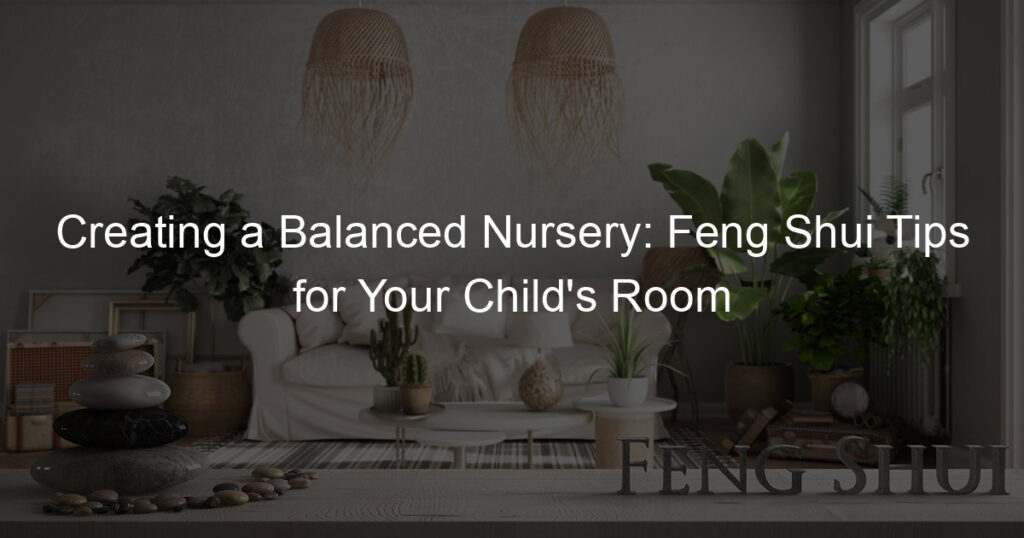
Introduction to Feng Shui
Feng Shui, an ancient Chinese practice, is more than just a design trend. It’s a way of arranging your surroundings to create balance with the natural world. This balance, in turn, can bring about peace, prosperity, and creativity. Let’s delve into the basics of Feng Shui and how it can boost creativity.
- Understanding the Basics of Feng Shui
- How Feng Shui Can Boost Creativity
Feng Shui, pronounced as “fung shway,” is a 3,000-year-old Chinese philosophy. It translates to “wind” (Feng) and “water” (Shui), two elements that flow and circulate everywhere on Earth. They are also the life force, or Chi, that Feng Shui aims to balance.
In Feng Shui, it’s believed that your surroundings can influence your life. By arranging your space according to Feng Shui principles, you can create a harmonious environment that promotes health, wealth, and happiness.
There are several tools used in Feng Shui, including the Bagua, an energy map of your space, and the Five Elements—Wood, Fire, Earth, Metal, and Water—that interact in certain ways to create balance or imbalance.
Did you know that your environment can affect your creativity? That’s where Feng Shui comes in. By using Feng Shui principles, you can design a space that stimulates your imagination and creativity.
For example, the East area of your space, according to the Bagua, is associated with the Wood element and the energy of growth and creativity. By enhancing this area with Wood element colors (like green) and shapes, you can boost your creative energy.
Another Feng Shui tip for creativity is to declutter your space. Clutter can block the flow of Chi, or energy, in your space. By clearing clutter, you can create a free-flowing, creative environment.
Now that we’ve covered the basics of Feng Shui and how it can boost creativity, let’s explore how you can apply these principles to design a Feng Shui home office that fosters creativity.
How to Design a Feng Shui Home Office
Designing a Feng Shui home office can be a rewarding task. It involves creating a space that not only looks good but also promotes positive energy flow. One of the most important aspects of this process is choosing the right location for your office.
Choosing the Right Location
Choosing the right location for your home office is crucial in Feng Shui. The location can significantly influence the energy flow and, consequently, your productivity and creativity.
- Importance of location in Feng Shui home office design
- Examples of ideal locations for a home office
The location of your home office in Feng Shui is not just about where you place your desk. It’s about choosing a space that allows for optimal energy flow. This is because Feng Shui believes that the energy in our environment can affect our mood, thoughts, and overall well-being. Therefore, a well-placed home office can help enhance your focus, reduce stress, and increase productivity.
When it comes to choosing the ideal location for your home office, there are a few things to consider. First, the office should ideally be located in a quiet part of the house, away from the hustle and bustle of daily life. This could be a spare room, a corner of your bedroom, or even a converted closet. Second, the office should have plenty of natural light, as this is considered beneficial for energy flow in Feng Shui. Lastly, the office should not be located near the bathroom or kitchen, as these areas are believed to have negative energy in Feng Shui.
In conclusion, the location of your home office plays a pivotal role in Feng Shui. By choosing the right location, you can create a space that promotes positive energy flow, enhances your productivity, and boosts your creativity.
Creating a Balanced Office Layout
Creating a balanced office layout is a crucial step in designing a Feng Shui home office. It involves understanding the Feng Shui office layout and arranging furniture for optimal energy flow. Let’s dive into these two aspects.
- Understanding the Feng Shui Office Layout
Feng Shui is an ancient Chinese practice that focuses on harmonizing the energy or ‘Chi’ in a space. In an office setting, a balanced layout is one where the furniture and objects are arranged in a way that promotes positive energy flow and reduces negative energy.
For instance, your desk should be in a commanding position, which means it should be facing the door but not in line with it. This allows you to see who is entering the office, which can reduce stress and create a sense of control. The office should also be clutter-free, as clutter can block the flow of positive energy.
- How to Arrange Furniture for Optimal Energy Flow
Arranging furniture in a Feng Shui office layout is more than just about aesthetics; it’s about creating a space that promotes productivity and creativity. Here are a few tips:
- Desk Position: As mentioned earlier, place your desk in a commanding position. Avoid placing it directly in front of the door or window.
- Seating: Choose a chair that is comfortable and supportive. It should be positioned so that your back is not facing the door or window.
- Storage: Keep your office clutter-free. Use storage solutions like shelves, cabinets, and drawers to organize your files and supplies.
- Lighting: Natural light is best, but if that’s not possible, use warm, soft lighting to create a welcoming atmosphere.
Remember, the goal is to create a balanced office layout that promotes positive energy flow. This can enhance your productivity and creativity, making your work experience more enjoyable and fruitful.
Feng Shui Principles for Boosting Creativity
When it comes to boosting creativity, Feng Shui offers a unique approach. By applying the principles of this ancient Chinese art, you can create an environment that fosters creativity and innovation. One of the key aspects of Feng Shui is the concept of the Five Elements.
Using the Five Elements
The Five Elements in Feng Shui are Wood, Fire, Earth, Metal, and Water. Each element represents different types of energy and can be used to balance and enhance the energy in your home office.
- Introduction to the Five Elements in Feng Shui
- How to incorporate the Five Elements into your home office
Wood symbolizes growth and creativity, making it a great element for a home office. Fire represents passion and transformation, which can help ignite your creative spark. Earth stands for stability and nourishment, providing a solid foundation for your creative endeavors. Metal signifies clarity and precision, helping you to focus your creative energy. Lastly, Water embodies wisdom and serenity, encouraging a calm and clear mind for creative thinking.
There are many ways to incorporate the Five Elements into your home office. For Wood, consider adding plants or wooden furniture. For Fire, use candles or red decor. For Earth, incorporate earth-toned colors and ceramics. For Metal, add metal accessories or use grey tones. For Water, consider adding a small water feature or using blue tones in your decor. Remember, the goal is to create a balanced and harmonious environment that promotes creativity.
In conclusion, by understanding and applying the principles of the Five Elements in Feng Shui, you can create a home office that not only boosts your creativity but also promotes a sense of well-being and productivity. So why not give it a try? You might be surprised by the positive changes it can bring to your work and life.
Color and Feng Shui Creativity
Color plays a crucial role in Feng Shui, and it can significantly influence our creativity. Let’s delve into how we can harness the power of color to boost our creative energy.
- Understanding the impact of color on creativity
- Choosing the right colors for your home office
Colors can evoke different emotions and reactions. For instance, blue is often associated with calmness and can stimulate a peaceful state of mind, which is conducive to creative thinking. On the other hand, red can invoke passion and energy, sparking dynamic and bold ideas.
Research shows that exposure to certain colors can enhance cognitive performance and creativity. A study conducted by the University of British Columbia found that blue boosts creative thinking, while red enhances attention to detail.
When it comes to selecting the right colors for your home office, it’s essential to consider the type of work you do and the kind of creative energy you want to foster.
If your work requires deep thinking and creativity, shades of blue or green can be a good choice. These colors are associated with tranquility and balance in Feng Shui, promoting a calm and focused mind.
For those involved in energetic and passionate projects, vibrant colors like red or orange can be beneficial. These colors are known to stimulate activity and enthusiasm, fueling your creative drive.
Remember, the key is to create a balanced environment. Too much of any color can be overwhelming. Consider using neutral tones for large areas and adding splashes of color through accessories or artwork.
In conclusion, understanding the impact of color on our creativity and choosing the right colors for our home office can significantly enhance our creative energy, leading to more productive and satisfying work experiences.
Improving Your Home Office with Feng Shui
When it comes to enhancing your home office, Feng Shui can play a significant role. This ancient Chinese practice can help create a harmonious and productive workspace. One of the key aspects of Feng Shui is decluttering. Let’s delve into how decluttering can improve the energy flow in your home office.
Decluttering for Better Energy Flow
Decluttering is more than just tidying up your workspace. In Feng Shui, it’s a way to clear the path for positive energy, or ‘Chi’, to flow freely. Here’s why decluttering is important and some practical tips to help you get started.
- The role of decluttering in Feng Shui
- Practical tips for decluttering your home office
- Start small: Begin with a single drawer or shelf. Once you’ve decluttered that area, move on to the next.
- Keep, toss, donate: As you go through your items, decide whether to keep, toss, or donate each one. If it doesn’t serve a purpose or bring you joy, it’s time to let it go.
- Organize your space: Use storage solutions like bins, folders, and shelves to keep your workspace organized.
- Maintain the cleanliness: Make it a habit to clean your workspace regularly to prevent clutter from building up again.
In Feng Shui, clutter is seen as a blockage to the flow of positive energy. It’s believed that a cluttered space can lead to a cluttered mind, affecting your productivity and creativity. By decluttering, you’re not just creating a cleaner workspace, but also making room for new ideas and opportunities.
Decluttering your home office doesn’t have to be a daunting task. Here are some simple steps to get you started:
By decluttering your home office, you’re not just creating a more organized workspace. You’re also improving the energy flow and setting the stage for increased productivity and creativity. So, why not give it a try?
Lighting and Feng Shui for Productivity
Lighting plays a crucial role in Feng Shui, and it can significantly impact your productivity, especially in a home office setting. Let’s explore the importance of natural light in Feng Shui and how to optimize it in your home office.
- The importance of natural light in Feng Shui
- How to optimize lighting in your home office
- Maximize natural light: Position your desk near a window, but avoid direct sunlight on your computer screen to prevent glare.
- Use mirrors: Mirrors can reflect light and make your room brighter. They also represent water in Feng Shui, which can help balance the energy in your office.
- Choose the right artificial light: If natural light is limited, choose full-spectrum bulbs that mimic natural light. Avoid fluorescent lights as they can cause headaches and eye strain.
- Use adjustable lighting: Adjustable desk lamps allow you to control the amount and direction of light, which can be helpful for different tasks.
Natural light is a vital element in Feng Shui. It is believed to bring in positive energy, or ‘Chi,’ into your space. This energy promotes a sense of well-being, balance, and harmony. Studies have shown that exposure to natural light can boost mood, enhance morale, decrease fatigue, and reduce eyestrain. In a home office, having enough natural light can make you feel more comfortable and focused, thus increasing your productivity.
Optimizing lighting in your home office involves more than just opening a window. Here are some tips:
Remember, a well-lit office can make a significant difference in your productivity and overall well-being.
In conclusion, lighting is a key aspect of Feng Shui that can enhance your productivity in a home office. By understanding its importance and learning how to optimize it, you can create a more balanced, harmonious, and productive workspace.
Home Office Feng Shui Tips for Increasing Creativity
Creating a home office that fosters creativity can be a challenging task. However, with the principles of Feng Shui, it’s possible to design a workspace that not only inspires creativity but also promotes productivity and well-being. Let’s explore how using plants and artwork can enhance your office’s Feng Shui.
Using Plants and Artwork
Plants and artwork play a significant role in Feng Shui. They not only add aesthetic appeal to your office but also help to balance the energy, known as ‘Chi’, in your workspace. Let’s delve into how these elements can enhance creativity in your home office.
- How plants can enhance creativity in Feng Shui
- The role of artwork in a Feng Shui office
Plants are considered a symbol of growth and prosperity in Feng Shui. They bring in positive energy and help to purify the air. Having plants in your office can create a calming environment, reducing stress and thus, fostering creativity. Some Feng Shui-friendly plants include the lucky bamboo, peace lily, and money plant. Remember to place your plants in the east or southeast corner of your office for optimal energy flow.
Artwork is another powerful tool in Feng Shui. It can inspire creativity and evoke positive emotions. Choose artwork that reflects your aspirations and resonates with your personal energy. The images should be uplifting and bring joy when you look at them. In Feng Shui, it’s recommended to hang artwork on the north or south wall of your office. However, avoid images that are too chaotic or depict isolation, as they can disrupt the energy flow.
In conclusion, incorporating plants and artwork in your home office according to Feng Shui principles can significantly enhance creativity. They not only improve the aesthetic appeal of your workspace but also balance the energy flow, promoting a positive and creative environment.
Positioning Your Desk for Success
In Feng Shui, the position of your desk can have a significant impact on your productivity and creativity. Let’s explore the best direction to face your desk and how desk positioning can affect your productivity.
- The best direction to face your desk
- How desk positioning can affect productivity
According to Feng Shui principles, the ideal direction to face your desk is towards the door or entrance of your office. This position, known as the ‘Command Position’, allows you to see anyone entering your space, thereby reducing surprise and stress. It also symbolizes you being in command of your work and career.
However, if it’s not possible to face the door, try to position your desk where you can at least see the door in your peripheral vision. If that’s also not possible, you can place a mirror on your desk or wall that reflects the entrance. This way, you won’t be startled by sudden entrances and can maintain a calm and focused mind.
Desk positioning can significantly affect your productivity. For instance, facing a wall or window while working can either make you feel boxed in or easily distracted, respectively. Both scenarios are not conducive to productivity.
Moreover, if your back is towards the door, it can create a subconscious feeling of vulnerability, as you can’t see who’s coming in. This can lead to stress and anxiety, which are detrimental to productivity.
On the other hand, a desk facing the door or in a command position can make you feel in control and secure, thereby enhancing focus and productivity. It also allows for better energy flow, as per Feng Shui principles.
In conclusion, positioning your desk correctly can not only boost your productivity but also enhance your creativity and overall well-being. So, take some time to arrange your desk as per these guidelines and experience the difference!
Case Studies: Feng Shui Success Stories
Let’s dive into some real-life examples of how Feng Shui has transformed home offices and boosted creativity. These success stories will provide you with inspiration and practical tips to apply in your own workspace.
Boosting Creativity in a Small Home Office
Small spaces can often feel limiting, but with the right Feng Shui principles, they can become powerhouses of creativity. Let’s explore a case study of a small home office that was transformed using Feng Shui.
Meet Sarah, a freelance graphic designer who worked from a small home office. She often felt stuck and uninspired in her workspace. After learning about Feng Shui, she decided to give it a try.
Firstly, Sarah decluttered her office, creating a clean and organized space. This is a key principle of Feng Shui, as clutter can block the flow of positive energy.
Next, she positioned her desk in the ‘command position’. This is where the desk faces the door but is not directly in line with it. This placement allowed her to see anyone entering the office, which helped her feel more in control and less distracted.
Finally, she added plants and artwork that represented her goals and aspirations. These elements served as visual reminders of her creative ambitions and helped to inspire her daily.
The result? Sarah reported a significant increase in her creativity and productivity. She felt more inspired and motivated in her workspace, and her business flourished as a result.
| Before Feng Shui | After Feng Shui |
|---|---|
| Cluttered workspace | Clean and organized office |
| Desk facing away from the door | Desk in ‘command position’ |
| No visual reminders of goals | Artwork and plants representing ambitions |
| Low creativity and productivity | Increased creativity and productivity |
As Sarah’s story illustrates, even a small home office can be transformed into a creative sanctuary with the right Feng Shui principles. Remember, the goal is to create a space that supports your creativity and productivity, no matter its size.
Transforming a Busy Home Office with Feng Shui
Is your home office a hub of activity, with papers, books, and gadgets scattered everywhere? Don’t worry, you’re not alone. Many people struggle with maintaining a neat and organized workspace. But did you know that a cluttered office can negatively impact your productivity and creativity? Let’s explore how Feng Shui can help transform your busy home office into a serene and efficient workspace.
Feng Shui, an ancient Chinese practice, focuses on harmonizing the energy or ‘Chi’ in a space. It can be a powerful tool to bring balance and positive energy to your home office. Here’s how:
- Declutter: The first step in Feng Shui is to get rid of clutter. A clean and organized workspace allows positive energy to flow freely.
- Position your desk: According to Feng Shui, the position of your desk can significantly impact your productivity. The ideal position is facing the door, but not directly in line with it.
- Use the right colors: Colors can affect your mood and productivity. Feng Shui recommends using earth tones to create a calm and focused environment.
- Bring in nature: Plants can improve the energy in your office. They not only purify the air but also bring in positive energy.
Let’s look at a case study to understand how these principles can be applied in a real-life scenario.
Case Study: Jane’s Home Office Transformation
Jane, a freelance writer, was struggling with maintaining focus in her busy home office. After implementing Feng Shui principles, she noticed a significant improvement in her productivity and creativity.
| Before Feng Shui | After Feng Shui |
|---|---|
| Cluttered workspace | Organized and clean workspace |
| Desk facing the wall | Desk facing the door |
| Bright, distracting colors | Calm, earth tones |
| No plants | Several indoor plants |
As you can see, Jane’s office underwent a significant transformation. By simply applying Feng Shui principles, she was able to create a more harmonious and productive workspace. Remember, a busy home office doesn’t have to be a stressful one. With Feng Shui, you can transform your workspace and boost your productivity and creativity.
Increasing Productivity with a Feng Shui Office Layout
Imagine a workspace where everything flows. Where you feel energized, focused, and productive. This is the power of a Feng Shui office layout. Let’s explore how this ancient Chinese practice can boost your productivity.
Feng Shui is a design philosophy that believes in arranging your environment to maximize positive energy, or Chi. When applied to an office layout, it can create a space that promotes efficiency, reduces stress, and increases productivity.
Key Elements of a Feng Shui Office Layout
Here are some important elements to consider when designing a Feng Shui office:
- Desk Position: Your desk should be in the command position. This means it should face the door, but not be directly in line with it. You should be able to see who is coming in without turning around.
- Clutter-Free: A clean and organized workspace allows energy to flow freely. Regularly clean your desk and office to remove any clutter.
- Natural Light: Natural light is energizing and uplifting. If possible, position your desk near a window. If not, consider using full-spectrum light bulbs.
- Plants: Plants represent growth and prosperity. They also improve air quality. Consider adding a plant to your office, such as a bamboo or a peace lily.
Productivity Boost: A Case Study
Let’s look at a real-life example of how a Feng Shui office layout can increase productivity. Jane, a freelance writer, was struggling with her productivity. She felt stressed and overwhelmed in her home office. After implementing Feng Shui principles, Jane noticed a significant improvement in her productivity.
| Before Feng Shui | After Feng Shui |
|---|---|
| Struggled to focus | Improved concentration |
| Felt stressed | Reduced stress levels |
| Low productivity | Increased work output |
In conclusion, a Feng Shui office layout can significantly increase your productivity. By creating a harmonious environment, you can improve your focus, reduce stress, and achieve more. So why not give it a try? You might be surprised at the results.
Conclusion: Embrace Feng Shui for a More Creative Home Office
As we reach the end of our journey into the world of Feng Shui, it’s clear that this ancient practice holds significant potential for transforming our home offices into spaces that foster creativity and productivity. Let’s take a moment to recap the key points we’ve learned and consider the final thoughts on Feng Shui and creativity.
- Recap of key takeaways
- Final thoughts on Feng Shui and creativity
Throughout this article, we’ve explored the principles of Feng Shui and how they can be applied to a home office setting. We’ve learned that a well-designed Feng Shui office can boost creativity, productivity, and overall well-being. We’ve also discovered that elements such as natural light, plants, and the strategic placement of furniture can significantly influence the energy flow in our workspace. Moreover, we’ve seen real-life examples of how Feng Shui has positively impacted individuals in their home offices.
Feng Shui is more than just an interior design trend; it’s a philosophy that encourages harmony between individuals and their surroundings. By embracing Feng Shui in our home offices, we can create an environment that not only looks good but also promotes creativity and productivity. Remember, the goal is to create a balanced space that feels good to be in and supports your work and creative processes. So, why not give Feng Shui a try? It might just be the key to unlocking your full creative potential in your home office.
In conclusion, Feng Shui offers a unique approach to designing a home office that fosters creativity. It’s about creating a space that feels good, works well, and ultimately, supports your journey to success. So, embrace Feng Shui, and let it guide you to a more creative and productive home office.














